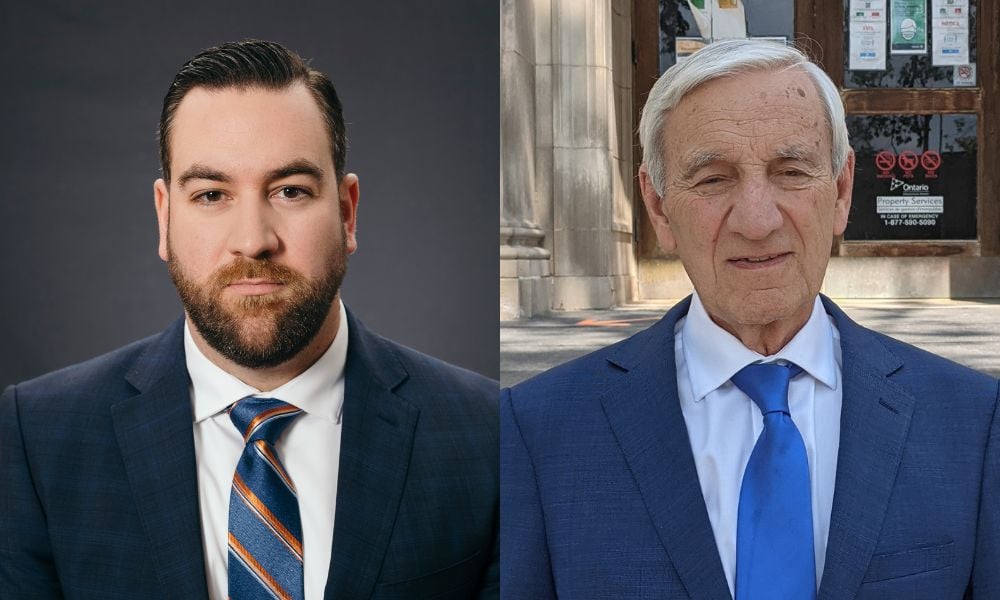Third prong of s. 24(2) test tipped scale toward evidence's inclusion

Though they found the police had breached a man’s Charter rights when they administered a sobriety check on private property, the Supreme Court of Canada has ruled that the test results could be included in the evidence and have restored his impaired driving conviction.
R. v. McColman, 2023 SCC 8 dealt with events occurring after midnight one evening in March 2016 in Thessalon First Nation, 211 km west of Sudbury, Ont. Police had begun following Walker McColman as he left a convenience store in an all-terrain vehicle. They did not stop him until he pulled into his parents’ driveway. Then, after observing signs of intoxication, the officers arrested him and conducted two breathalyzer tests.
McColman came to the SCC via a divided Ontario Court of Appeal, which had confirmed McColman’s acquittal and found that the police’s actions were a violation of s. 9’s protection against arbitrary detention. The Court of Appeal had found that the breathalyzer results should be excluded from evidence under s. 24(2).
At the SCC, the Crown argued that under s. 48(1) of Ontario’s Highway Traffic Act, police can conduct a random sobriety stop once the suspect has pulled into private property if the officer “forms the intention on a highway.” The court rejected that argument, finding that the police must signal their intention to stop the driver while still on the road.
The court resolved some conflicting caselaw and clarified that police officers cannot initiate a sobriety check on private property, says Anthony Orazietti, who represented McColman with Donald Orazietti.
“That's the takeaway for the defence. The officer can't just say, ‘Well, I had the subjective intent of pulling him over, but then they pulled onto private property.’ The court doesn't accept that.”
“If it's a purely random stop – meaning there's no [Highway Traffic Act] violation… it can't be initiated once a vehicle is on private property… For the defence, that's the small victory here.”
Though the SCC agreed with the Court of Appeal that the sobriety check was a s. 9 violation, they parted ways on the s. 24(2) analysis. Writing the reasons for the SCC panel, Justices Richard Wagner and Michelle O'Bonsawin said that the evidence’s admission “would better serve the truth‑seeking function of the criminal trial process and would not damage the long‑term repute of the justice system.” The unlawful police stop “constituted a marked, although not egregious intrusion” on McColman’s Charter rights, the evidence it produced was reliable, and impaired driving is a serious offence, they said.
Under s. 24(2), evidence obtained through a Charter breach should be excluded from the prosecution if “having regard to all the circumstances, the admission of it in the proceedings would bring the administration of justice into disrepute.” The analysis has three stages: “the seriousness of the Charter-infringing state conduct, the impact of the breach on the Charter‑protected interests of the accused, and society’s interest in the adjudication of the case on its merits.”
The first line of inquiry pulled “slightly in favour of exclusion,” said Wagner and O'Bonsawin. At the time of the stop, “the applicable case law was in a state of uncertainty.” In the circumstances, the police should have erred on the side of caution, they said.
The Charter-infringing conduct fell “somewhere in the middle” of the spectrum between “fleeting and technical” and “profoundly intrusive,” so the second line of inquiry moderately favoured exclusion, said Wagner and O'Bonsawin.
But the third line of inquiry tipped the scale toward inclusion. Under this stage, the court considers “factors such as the reliability of the evidence, the importance of the evidence to the Crown’s case, and the seriousness of the alleged offence,” the judges said. The evidence was “reliable and crucial to the Crown’s case,” and the SCC has recognized that “society has a vital interest in combatting drinking and driving,” so the third prong strongly favoured inclusion.
The court found that the strength of the third line of inquiry overpowered the cumulative weight of the first two.
One aspect of the stage evaluating “the seriousness of the Charter-infringing state conduct” is whether the police acted in good faith. Given what is in the transcript of the officer’s testimony at trial, Donald Orazietti says it was naïve to find that of the police in these circumstances. The officer first denied, then admitted, to knowing McColman previously. The police also said that McColman had told them he had drank 10 beers that night. But McColman’s breathalyzer readings showed his blood alcohol level to be much lower.
“It's a pretty watered-down approach, and not a principled approach, to Section 24(2),” says Donald Orazietti.










